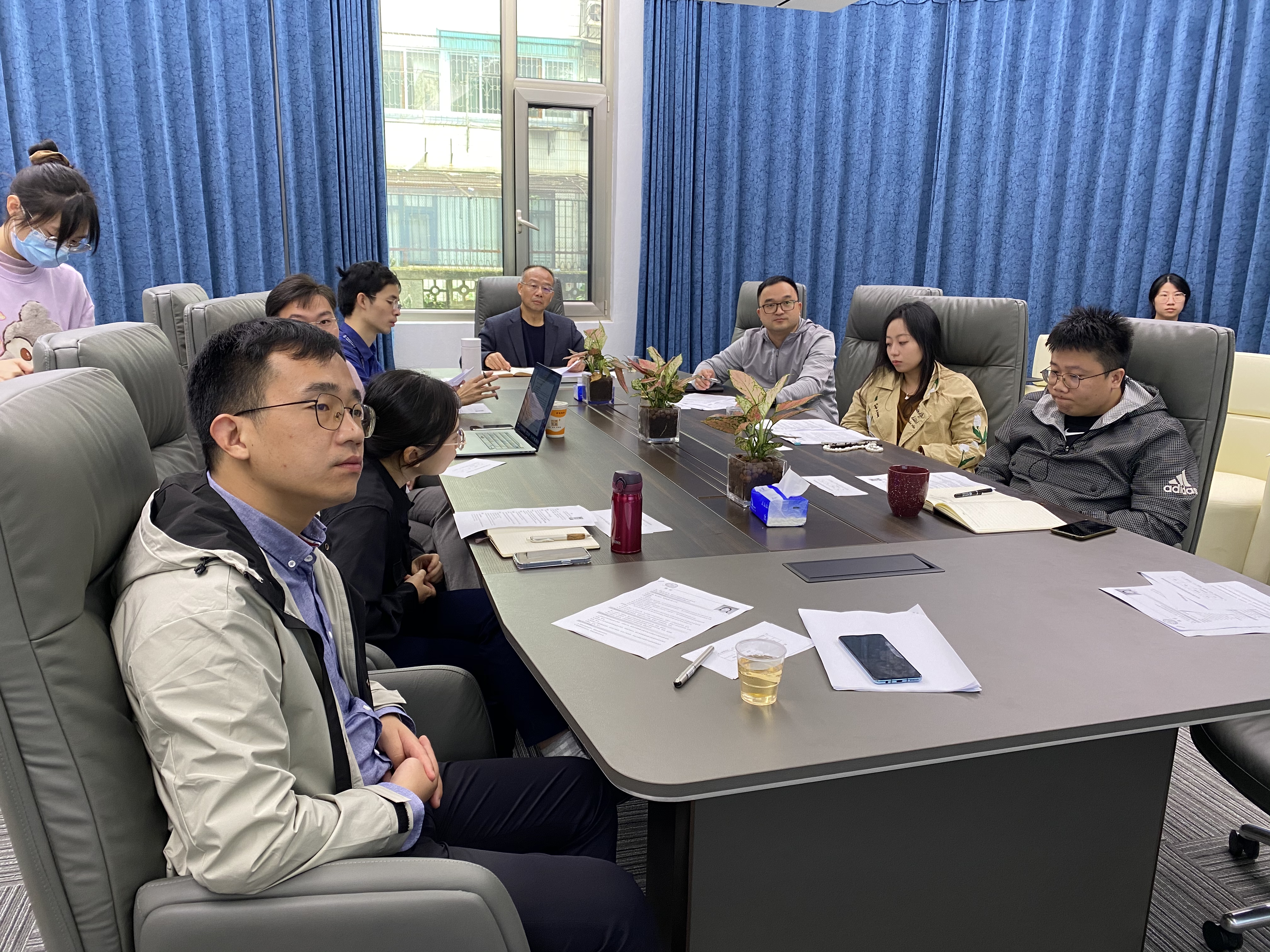On 4 November 2021, the 21st and 22nd Xi Xian Forum on Income Distribution and Public Finance, co-organised by IIDPF and the Institute of Public Finance and Taxation, was successfully held in Conference Room 119, Wenqin Building. Dr Li Zhao from Renmin University of China and Dr Zhang Yun from Xiamen University were invited to deliver keynote speeches on 'Environmental Regulation, Local Vulnerability and Enforcement - Evidence from China' and 'Digital Intelligence, Daual-circulation and Income Disparity' respectively as the keynote speakers of the 21st and 22nd Xi Xian Forum. The forum was chaired by Professor Sun Qunli, Deputy Director of IIDPF, and was attended by more than ten students and faculty members, including Professor Lu Yuanping, Executive Deputy Director of the base, and all IIDPF researchers, through online and offline hybrid means.
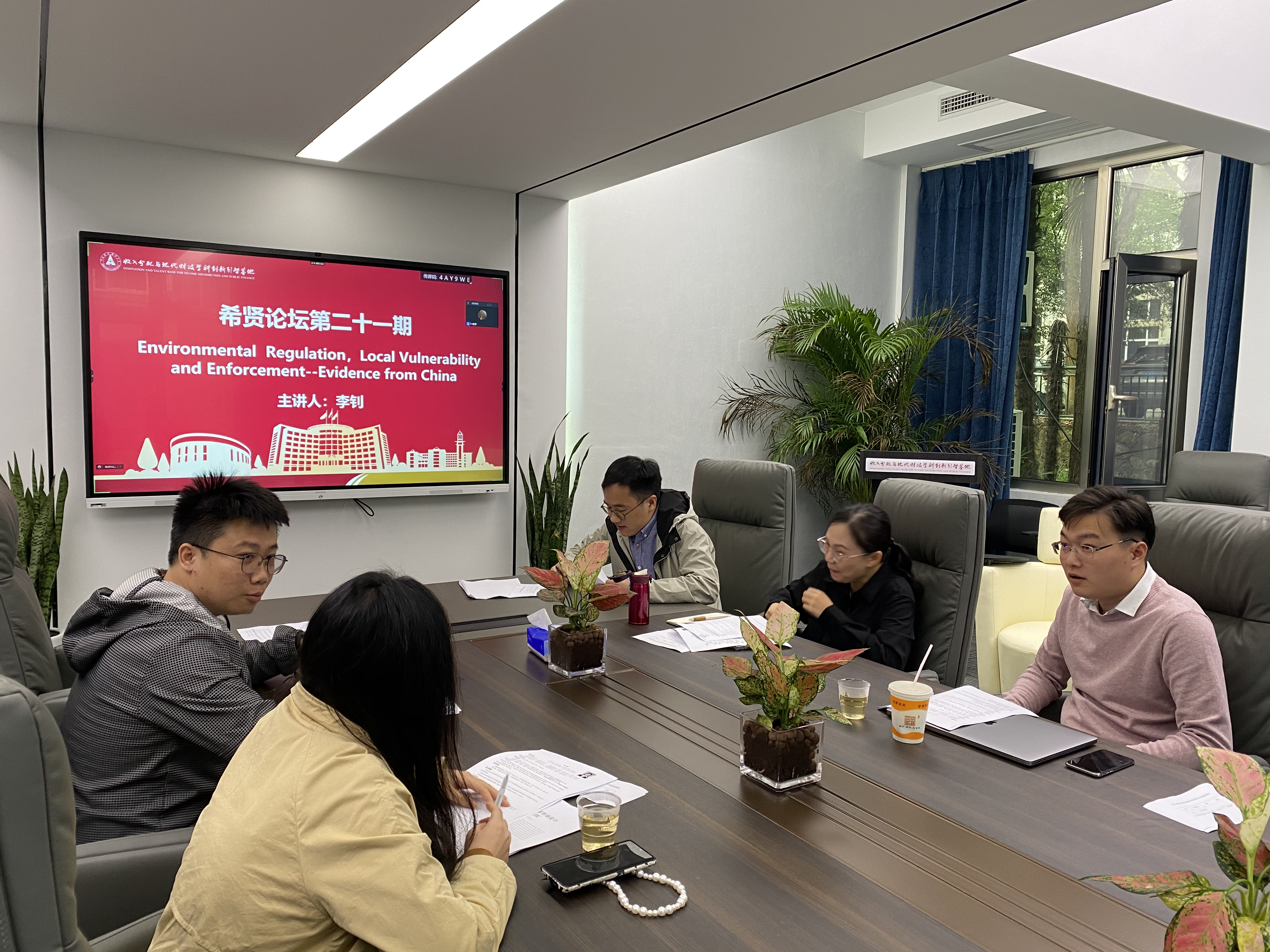
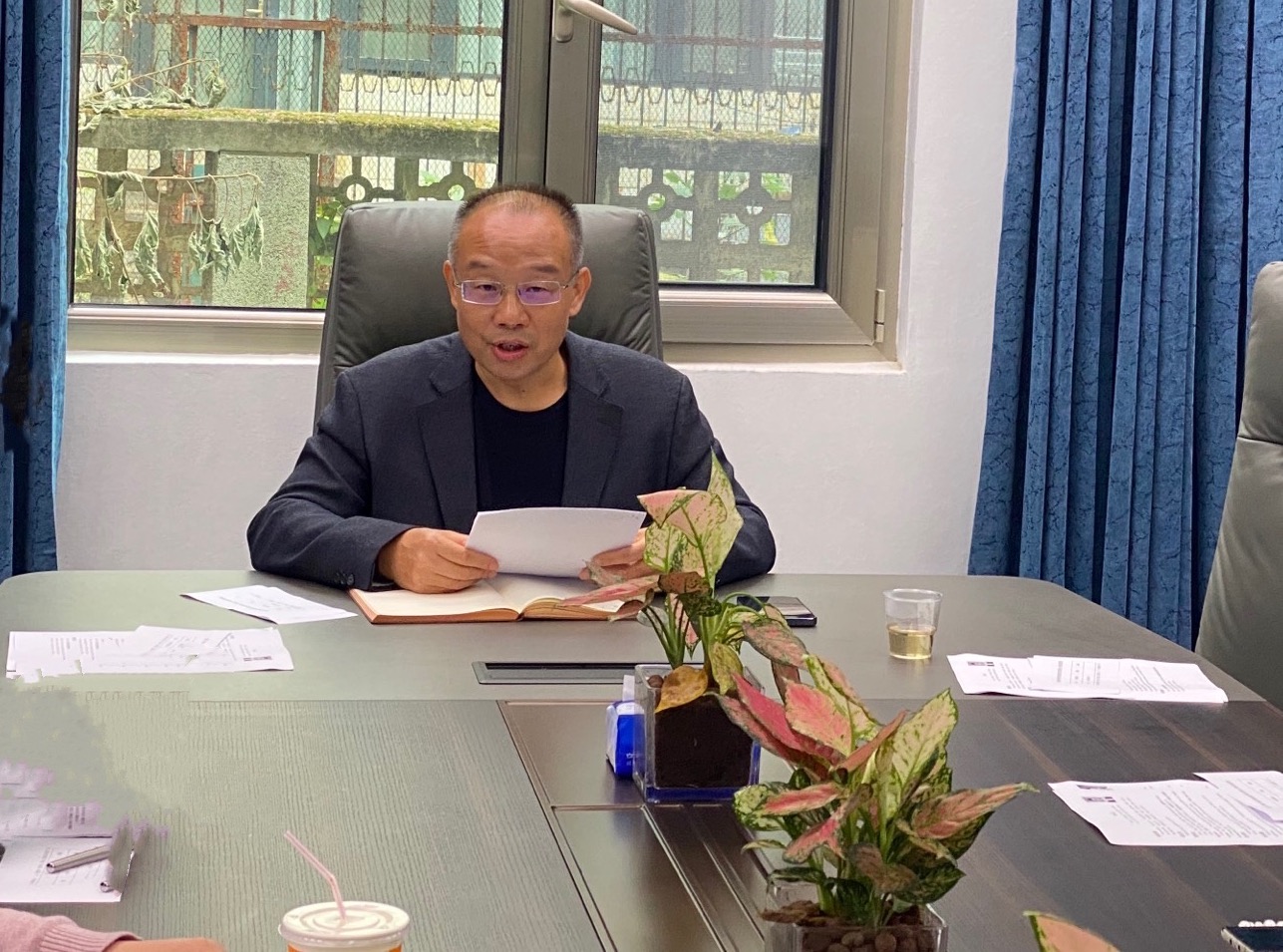
  Energy saving and emission reduction has always been a hotly debated social topic and an important means to combat environmental pollution. To this end, our government has introduced a series of environmental management policies. It is worth considering whether China's current environmental governance policies are working to save energy and reduce emissions? Is there any difference in the impact of a uniform environmental policy on local governments? Dr Li Zhao examines the relationship between environmental governance policies and energy efficiency, focusing on the impact of national environmental governance policies on local economies and the disincentives to local government policy implementation that result from such shocks. Dr Li Zhao conducted a quasi-natural experiment based on national tax survey data at the enterprise level and pollution emission data at the city level, using the Special Emission Limits for Air Pollutants (SELAP) policy released in 2013 as a blueprint. The results of empirical studies show that environmental governance policies have a significant and lasting effect on the achievement of energy saving and emission reduction targets. Further research found that the greater the economic dependence on key polluters, the greater the policy shock and the lower the willingness of local governments to implement environmental management policies.
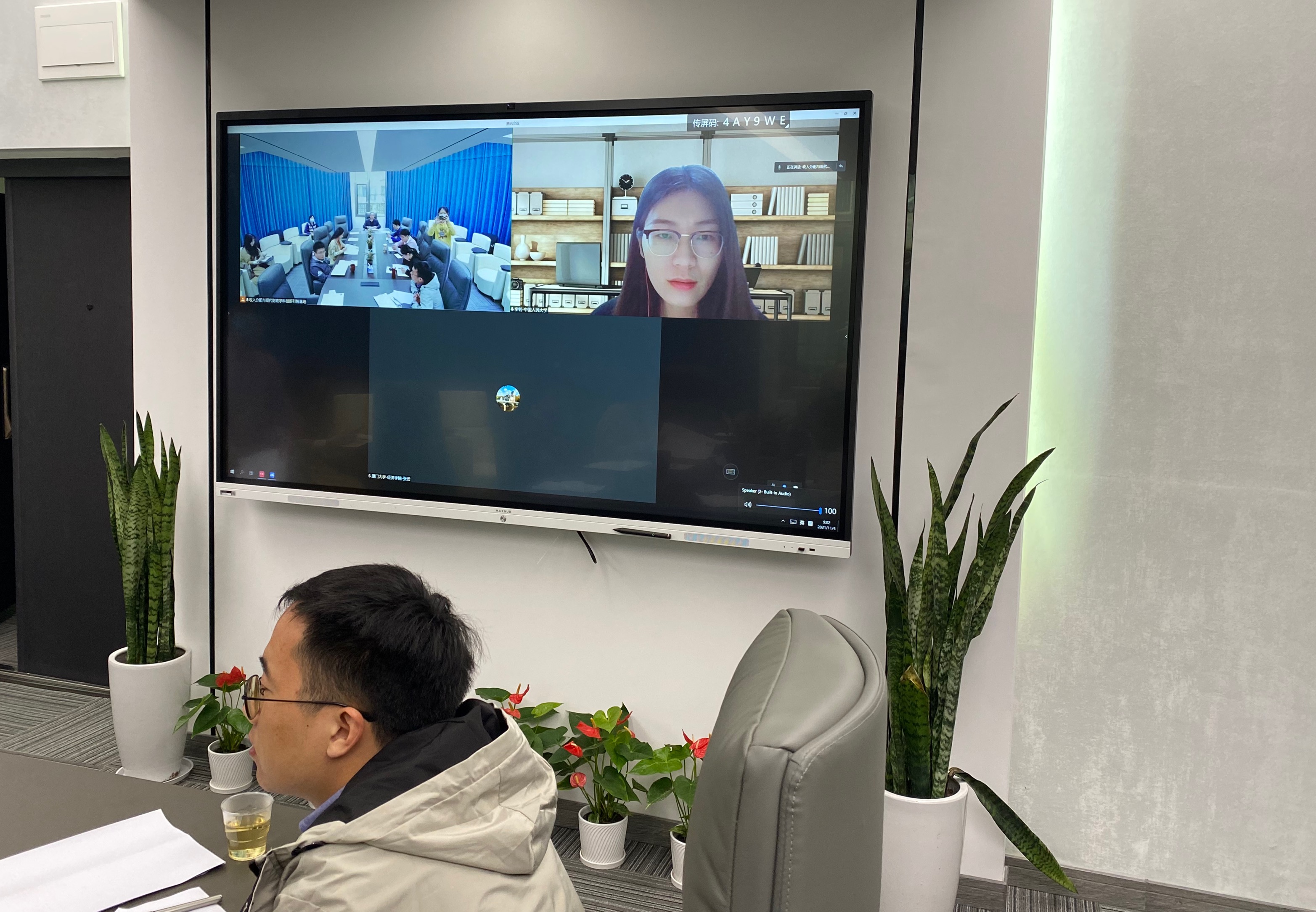
  The Fifth Plenary Session of the 19th CPC Central Committee clearly put forward the need to accelerate the construction of a new development pattern with a large domestic cycle as the mainstay and dual domestic and international cycles promoting each other. At the same time, the rapid development of the digital economy in recent years has gradually become a new driving force in reconfiguring China's economic growth, optimising the structure of social governance and promoting high-quality development of economic and social governance patterns. In this context, Dr Zhang Yun provides insights into how the new development pattern of the digital economy and the dual cycle affects the structure of income distribution in China from a dual macro perspective. By selecting data from CEADs China Interregional Non-Competitive Input-Output Tables and WIOD World Input-Output Tables, Dr Yun Zhang explored the intrinsic link between digital intelligence, dual circulation and income disparity. The study found that in a dual-loop context, digital intelligence reduces the relative income gap between "regions-industry-circuit" and contributes to the achievement of shared prosperity, with significant differences across economic structures, market structures and institutional environments.
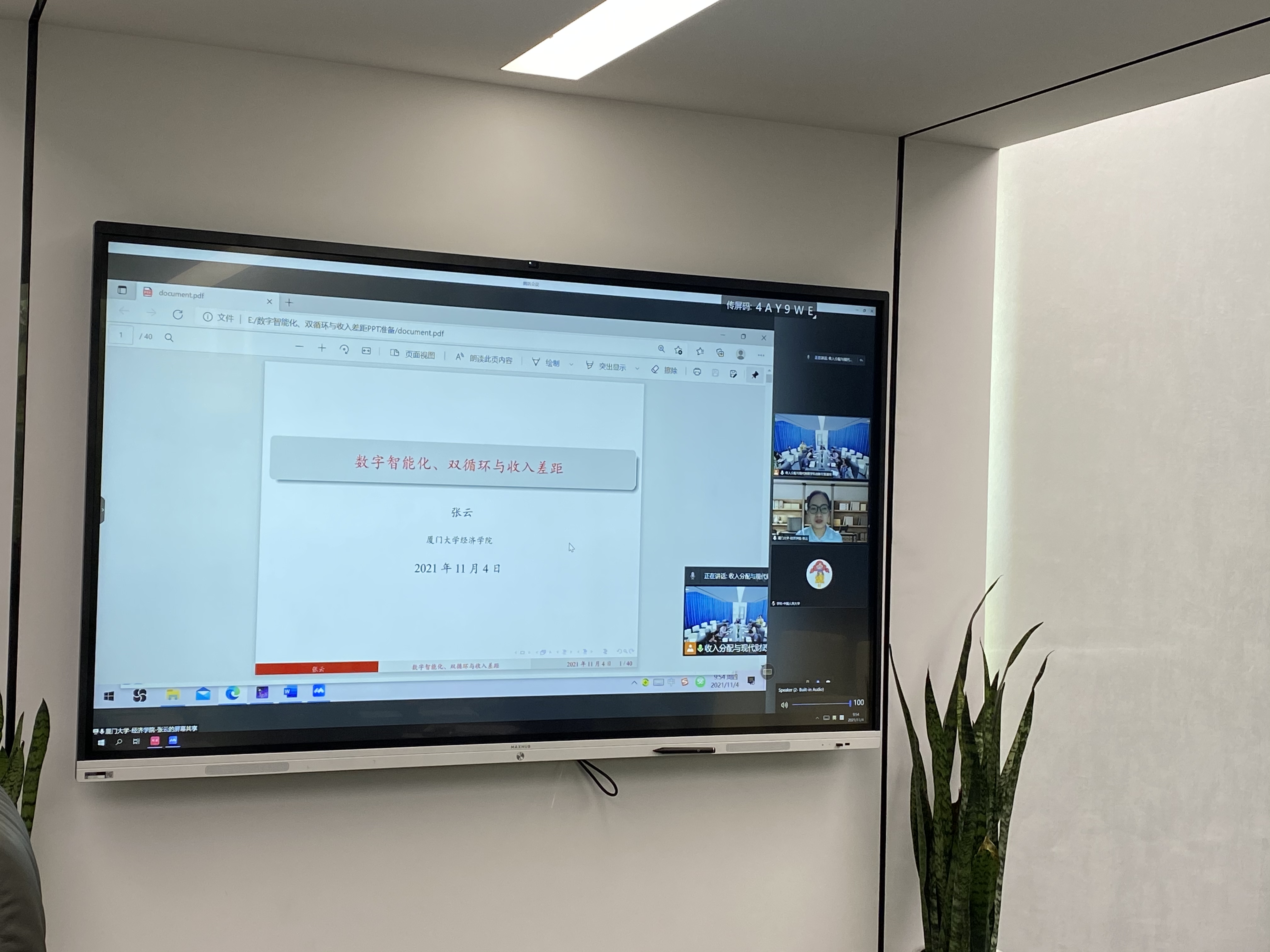
  Dr. Li Zhao and Dr. Zhang Yun's excellent presentations aroused the interest and resonance of the students and faculty members present, with active discussions on issues such as data selection, control variables, instrumental variables and robustness testing. This session of the forum ended with a round of applause.
